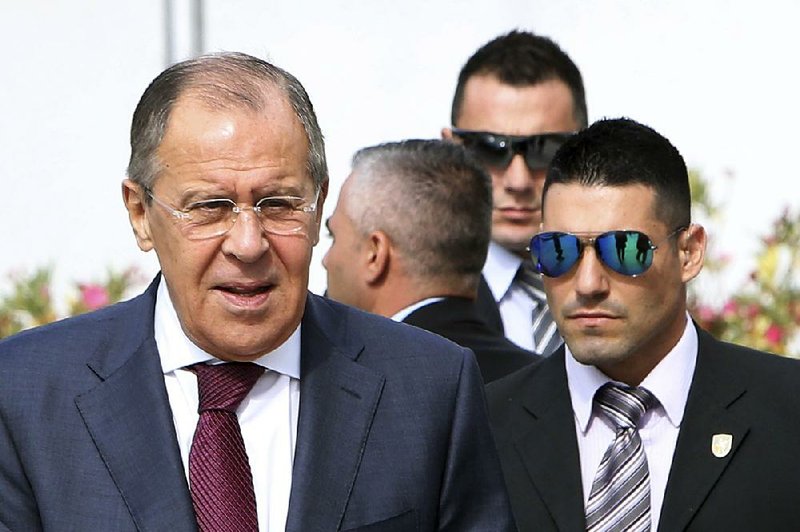Russian and Syrian officials Friday strongly condemned a U.S. airstrike on pro-Syrian government forces in southern Syria a day earlier, calling it an act of aggression and rejecting the United States' justification for the attack.
"It is illegitimate, it is unlawful and the latest gross violation of the sovereignty of the Syrian Arab Republic," Russia's foreign minister, Sergey Lavrov, said in Cyprus, according to the state-run Russian news agency Tass.
U.S. defense officials said Thursday that U.S. warplanes had struck a convoy of pro-government militia forces because it was approaching a base where U.S. and British special operations troops trained Syrian rebels to fight the Islamic State extremist group.
The officials said the convoy had ignored a warning strike, but the Syrian government countered that the United States had no right to defend a base established in Syria without government permission or to declare areas off-limits to pro-government forces.
The attack Thursday came against the backdrop of a broader geopolitical contest to take control of areas of eastern Syria held by the Islamic State, as well as of the highway from Damascus to Baghdad, which passes through the area where the strike took place.
Two competing coalitions -- backed by air power from the U.S. in one case and from Russia in the other -- are racing to the same goal, creating a potentially volatile situation and increasing the likelihood of clashes such as the one Thursday.
The state-run Syrian Arab News Agency said the strike unmasked "fake claims" by the U.S. that they were fighting terrorism, adding that anyone claiming to be fighting the Islamic State and al-Qaida should "direct strikes against them" and not against Syrian and allied forces.
Video posted online showed what was described as the aftermath of the attack. Voices speaking with an Iraqi accent in Arabic bolstered accounts that Iraqi militias -- many of which have fought on the Syrian government side with Iranian support -- had been hit.
A day before the attack, Iraq's national security adviser, Faleh al-Fayed, who acts as a go-between for Iran and the United States on the battle against the Islamic State in Iraq, had visited President Bashar Assad in Damascus to reaffirm Iraqi and Syrian government cooperation against the extremist group.
The militia Sayyid al-Shuhada, or Master of Martyrs, said in a statement that the United States had forgotten the role played by the resistance in Iraq during the war there and accused U.S. forces of interfering in their fight against the Islamic State.
"Targeting our presence in Syria is targeting us in Iraq, too, and we will strike the enemy and its supporters everywhere," the statement said.
The recriminations came as the latest round of talks in Geneva on the Syria crisis wrapped up with little progress, with the parties failing to even touch on four "baskets" of issues that were to be discussed.
Russia's Middle East envoy, Mikhail Bogdanov, complained Friday about the approach taken by the United States, calling it contradictory.
"The impression that the new administration gives is that it does not have any tactics, nor more importantly does it have any strategy," he told reporters in Russia. "It apparently searches for any way of solving problems, as it thinks, and maybe it is not very interested in some problems at all."
Although the United States has covertly aided some Syrian rebels fighting Assad, it has directly struck pro-government forces only twice before -- in 2016 in what it called an accident, and this year in retaliation for chemical attacks it blamed on Assad's forces.
The area where the convoy was struck is strategically important to the United States, which wants to stabilize Iraq -- where it has a long-term military and political investment -- and to Russia, which wants to strengthen the Syrian government's control of as much territory as possible.
The area is also critical to Iran, which wants secure corridors from its borders to the Mediterranean in order to reinforce its influence in Lebanon and to maintain an ability to challenge Israel.
Information for this article was contributed by Nick Cumming-Bruce of The New York Times.
A Section on 05/20/2017
